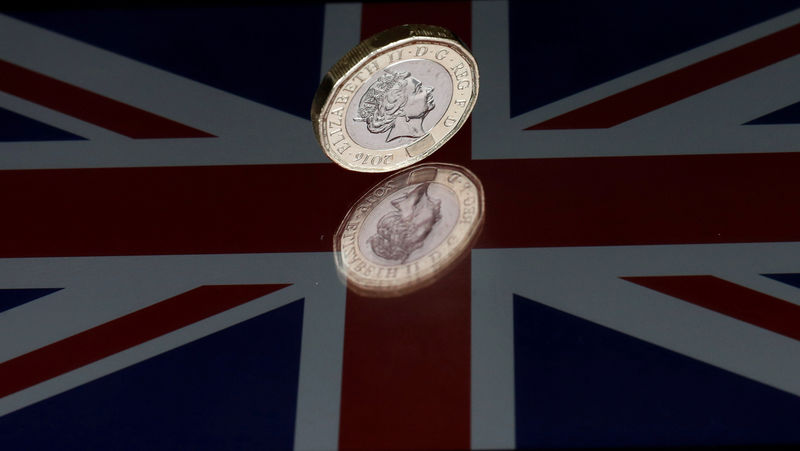Investing.com - The pound was slightly lower against the U.S. dollar on Wednesday after data showed that UK economic growth picked up slightly in the second quarter of the year, with the service sector driving growth.
GBP/USD was at 1.3016 by 04.54 a.m. ET (08.55 a.m. GMT) after initially touching a high of 1.3084.
The Office for National Statistics said gross domestic product rose by 0.3% in the three months to June, from 0.2% growth in the first three months of the year, in line with forecasts.
On a year-over-year basis, the economy expanded by 1.7% from 2.0% in the first quarter, also in line with forecasts.
Britain’s service sector drove growth with output rising by 0.5%, but industrial output shrank by 0.4% and construction output contracted by 0.9%.
ONS Head of National Accounts Darren Morgan said the report showed that Britain’s economy has experienced “a notable slowdown in the first half of this year.”
“While services such as retail, and film production and distribution showed some improvement in the second quarter, a weaker performance from construction and manufacturing pulled down overall growth.”
The pound was higher against the slightly softer euro, with EUR/GBP down 0.18% to 0.8925.
Meanwhile, the dollar ticked higher against a basket of the other major currencies as investors awaited the outcome of the Federal Reserve’s latest policy meeting later in the day.
The U.S. dollar index, which measures the greenback’s strength against a trade-weighted basket of six major currencies, rose to 94.03 after hitting a low of 93.46 on Tuesday, its weakest since June 2016.
The Fed is widely expected to keep policy on hold, but investors are hoping that the bank’s rate statement will reveal more about plans for monetary tightening this year.
The sluggish inflation outlook has raised doubts over whether the Fed will be able to stick to plans for a third rate hike this year.
Investors were also watching political developments in Washington after the U.S. Senate narrowly agreed to open debate on a bill to overhaul the Affordable Care Act.
But questions remained about whether Republicans would be able to gather enough support for any of the proposed approaches to repeal and replace Obamacare.
Declining expectations that the Trump administration will be able to push through items on its legislative agenda such as overhauling the tax code and implementing fiscal stimulus have fed into recent dollar weakness.
